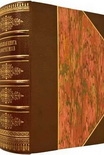Coconut Chaos, Diana Souhami [leveled readers TXT] 📗

- Author: Diana Souhami
Book online «Coconut Chaos, Diana Souhami [leveled readers TXT] 📗». Author Diana Souhami
While they waited, Fletcher Christian met up with his brother Charles, back from a voyage to India on which he’d served as ship’s surgeon. At the start of it, Charles said, he’d been full of life and vigour, ‘like a tree in promising blossom’, but he’d returned blighted, disappointed and ill. And he was to be charged with involvement in mutiny, a charge that led to a two-year suspension from the navy. Perhaps he communicated mutinous disaffection to Fletcher.
Bligh, disappointed from the start, set sail on 23 December 1787 in rough, stormy weather. Such late departure meant he reached the hazards of Cape Horn towards the end of March – entirely the wrong time for safe passage round that perilous stretch of ocean where gales and waves up to sixty-five feet high prevailed for all but thirty days of the year.
It was a voyage of missed winds and lost opportunities. Within hours of leaving Spithead, in rough seas a man was injured in a fall from the mainsail. For three days waves broke over the ship and washed away beer casks, spare yards and spars, loosened the three boats* and ruined the bread. ‘We were an entire Sea on Deck,’ Bligh wrote in his log. He was critical of the design of the ship and its small size and thought the complement of forty-five men too few and their calibre poor.
On the voyage out to Tahiti, Christian was his prize pupil, good-mannered and keen to please. Bligh made him acting lieutenant, assigned him morning watch, dined with him and even loaned him money despite his own modest pay. When they stopped at Tenerife it was Christian he sent as his envoy to negotiate with the governor for supplies of beef, pumpkins, potatoes and wood.
Bligh’s vigilance was constant. He was assiduous in keeping his crew healthy, disciplined and fed. When rain and humidity caused mildew, he had the ship aired with fires and sprinkled with vinegar. In clear weather he saw that all hatchways were opened and bedding and clothes washed. Drinking water was filtered through dripstones. Cooped seabirds were force-fed with corn so they didn’t taste fishy. He made sure all men had sufficient rest, that they ate sauerkraut to ward off scurvy, and hot porridge for breakfast when nights were cold. After Sunday inspection for cleanliness he held ‘Divine Service’. But his rigid discipline and efficiency were untempered by tact. He was high-handed, quick to anger, and worse than caustic. He chided one man in front of another, jeered if they made mistakes and made them feel like fools. He didn’t disguise his disdain for his crew and complained often to them about the absence of trained marines and commissioned officers.
Every afternoon from five to eight he made them all dance, ‘for Relaxation and Mirth’, to the music of Michael Byrne, the ship’s near-blind violinist. He thought this conducive to health. When John Mills the gunner’s mate, and William Brown the assistant gardener, refused to comply with such obligatory fun, Bligh stopped their grog. He judged Matthew Quintal insolent and mutinous, so had him stripped to the waist, bound by his wrists and watched by the crew while he was lashed two dozen times. He fell out with John Fryer the master, and with the surgeon Thomas Huggan. Both refused to dine with him. Bligh called Huggan, with reason, a fat, lazy, entirely incompetent sot and noted in his log that he was constantly drunk. (Huggan diagnosed scurvy when William Brown complained of rheumatism, James Valentine, an able seaman, died of an infection after being ‘bled’ by him for some minor ailment, and he described his own delirium tremens as caused by ‘paralytic affection’.)
After three months, on 28 March 1788, the Bounty reached Cape Horn. For twenty-five days Bligh forced the ship against great waves, gales and driving winds, snow, sleet and hail. The decks flooded, men were injured trying to manage the sails, eight became ill with exhaustion, the cook broke a rib, Huggan dislocated his shoulder. When neither men nor ship could take any more, Bligh turned and headed east to approach Tahiti via the Cape of Good Hope, southern Australia and New Zealand. By this change he added ten thousand miles to the journey. From Spithead to Tahiti he logged twenty-eight thousand miles. He arrived in October 1788. The voyage had taken ten months. Bligh prided himself on having kept all but one of his crew alive in extreme conditions. But the men had had enough of him. William Purcell said he watched them solely to find fault.
* A launch of 23 feet, a cutter of 18 feet and a jolly boat of 16 feet.
7
The Tahitians had cause to be chary about visits from English mariners. Twenty years before the Bounty saga, on 18 June 1767, the Dolphin arrived at the island captained by Samuel Wallis, a Cornishman. His commission by the Admiralty was ‘To discover and obtain a complete knowledge of the Land or Islands supposed to be situated in the Southern Hemisphere’. When he reached Tahiti and saw mountains obscured by cloud he thought he’d discovered ‘the Southern Continent’.
The islanders, intrigued as his ship came into view, paddled out to it in their canoes. As a symbol of peace and friendship they held up plantain branches and at Wallis’s invitation they surged on board ship to marvel at this floating island. In the noise and excitement a goat butted one of them on the bottom. The man turned, saw





Comments (0)